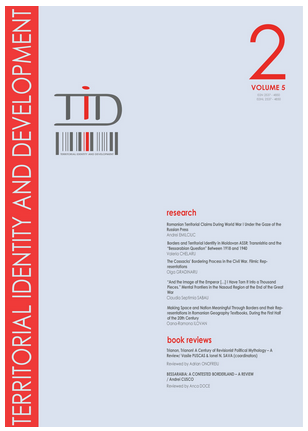DISCIPLINARY CHALLENGES IN FOLKLORE STUDIES IN ROMANIA AFTER 1945. TWO CASE STUDIES FROM THE CLUJ FOLKLORE ARCHIVE (ARHIVA DE FOLCLOR DIN CLUJ)
DISCIPLINARY CHALLENGES IN FOLKLORE STUDIES IN ROMANIA AFTER 1945. TWO CASE STUDIES FROM THE CLUJ FOLKLORE ARCHIVE (ARHIVA DE FOLCLOR DIN CLUJ)
Author(s): Alina BrandaSubject(s): Geography, Regional studies, Regional Geography, Historical Geography
Published by: Universitatea Babeş-Bolyai
Keywords: totalitarian regime; research policies; regional cultural identity; political control; ideology;
Summary/Abstract: The main goal of this paper is to adequately understand the shifts produced after 1945 in Folklore Studies (Ethnology) in terms of research topics, methodologies, approaches, and scientific policies, in connection with the new political and ideological context. In particular it aims at discussing how, why and to what extent the Cluj Folklore Archive could be defined as a cultural institution playing an important role at the regional level whilst contributing to a correct socio-cultural understanding of Transylvania in relation to the other Romanian provinces. Content analysis will be the main methodology used, whereas the intricate connections and relationships among archives, memory, and territorial and cultural identities shown in the sources will support the process of understanding, deepening, and widening the researched topic.
Journal: Territorial Identity and Development
- Issue Year: 6/2021
- Issue No: 2
- Page Range: 47-62
- Page Count: 16
- Language: English

